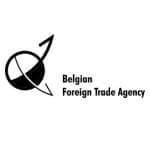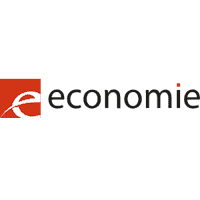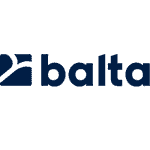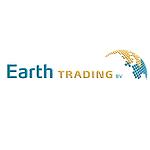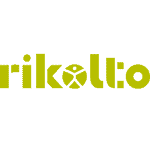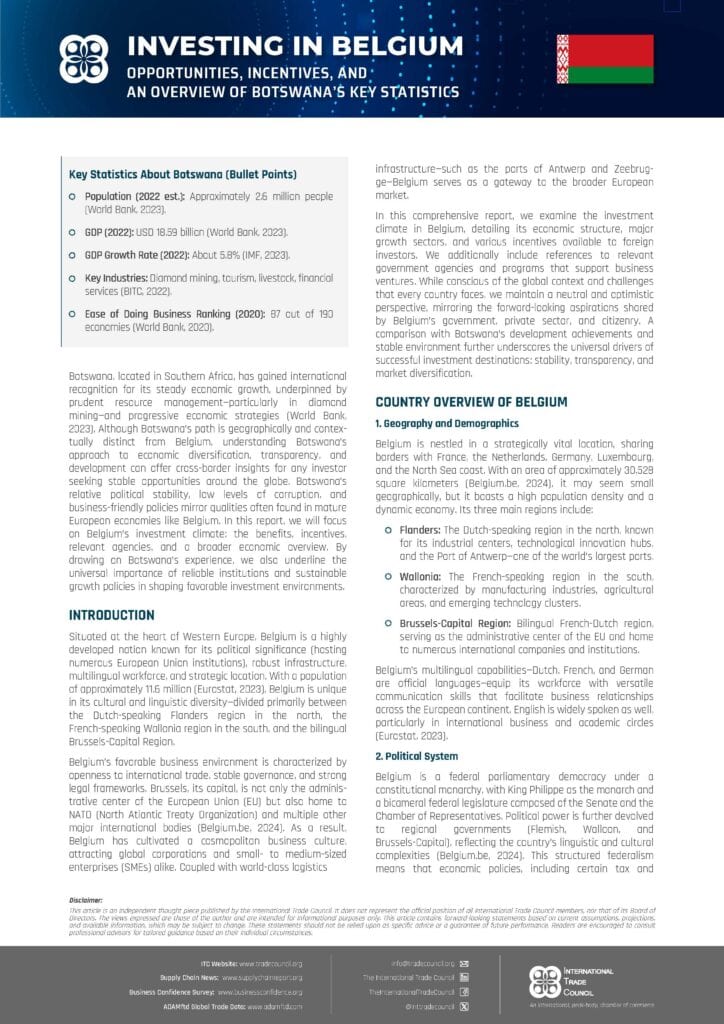- Type of Government: Federal Parliamentary Democracy under a Constitutional Monarchy
- Population: Approximately 11.7 million
- GDP: Around $600 billion USD
- Corporate Tax Rate: 25%
- Personal Income Tax Rate: Progressive, up to 50%
- Major Exports: Machinery, chemicals, pharmaceuticals, vehicles
- Major Imports: Raw materials, machinery, chemicals, vehicles
Doing Business with Belgium
A comprehensive guide to doing business, exporting, investing, and manufacturing in Belgium.
Exporting to Belgium involves several steps to ensure compliance with local regulations. Here’s a detailed guide:
-
Research Market Opportunities
- Understand the demand for your product in Belgium.
- Analyze competitors and pricing strategies.
-
Verify Product Compliance
- Ensure your product meets EU standards and regulations.
- Contact the Belgian Federal Public Service Economy for specific requirements.
- FPS Economy Website
-
Register Your Business
- Ensure your business is legally registered to export.
- Contact your local Chamber of Commerce for necessary documentation.
-
Obtain Necessary Certifications
- Identify if your product requires any special certifications or licenses.
- Consult the Belgian Customs and Excise for guidance.
- Customs Website
-
Understand Tariffs and Taxes
- Check applicable import duties and VAT for your goods.
- Utilize the European Commission’s TARIC database for detailed tariff information.
- TARIC Database
-
Arrange Logistics and Shipping
- Choose a reliable shipping company familiar with logistics in Belgium.
- Ensure all shipping documents are accurately completed.
-
Prepare Documentation
- Include commercial invoices, packing lists, and certificates of origin.
- Ensure documentation complies with Belgian customs requirements.
-
Customs Clearance
- Work with a customs broker to facilitate the clearance process.
- Contact Belgian Customs for detailed procedures.
- Customs Website
-
Distribution and Sales
- Establish distribution channels within Belgium.
- Consider partnerships with local businesses for effective market penetration.
Key Contacts
- Belgian Federal Public Service Economy
- Website: economie.fgov.be
- Belgian Customs and Excise
- European Commission’s TARIC Database
- Website: TARIC Database
Importing goods into Belgium involves several steps to ensure compliance with local and EU regulations. Here is a detailed guide:
-
Research Import Regulations
- Understand the import requirements for your goods.
- Consult the Belgian Customs and Excise for regulations.
- Customs Website
-
Register Your Business
- Ensure your business is registered and has an EORI number (Economic Operator Registration and Identification).
- Contact the Belgian Federal Public Service Economy for registration details.
- FPS Economy Website
-
Check Product Compliance
- Ensure your products meet EU standards and regulations.
- Certain products may require CE marking or other certifications.
-
Understand Tariffs and Taxes
- Check applicable import duties and VAT for your goods.
- Use the European Commission’s TARIC database for detailed tariff information.
- TARIC Database
-
Arrange Shipping and Logistics
- Select a reputable shipping company.
- Ensure compliance with shipping and labeling requirements.
-
Prepare Import Documentation
- Ensure all necessary documents are completed, such as invoices, packing lists, and certificates of origin.
- Verify documentation with Belgian Customs.
-
Customs Clearance
- Work with a customs broker to facilitate the clearance process.
- Pay any duties and taxes required for the import.
-
Receive and Distribute Goods
- Arrange for the delivery and distribution of goods upon clearance.
- Establish partnerships with local distributors if needed.
Key Contacts
- Belgian Customs and Excise
- Belgian Federal Public Service Economy
- Website: economie.fgov.be
- European Commission’s TARIC Database
- Website: TARIC Database
Incorporating a company in Belgium involves several key steps. Here’s a detailed guide:
-
Choose a Business Structure
- Decide on the legal form of your company (e.g., BV, NV).
- Consult with a legal advisor to choose the best structure for your needs.
-
Draft Incorporation Documents
- Prepare the articles of association.
- Have the documents notarized by a Belgian notary.
-
Open a Bank Account
- Open a corporate bank account in Belgium.
- Deposit the minimum required share capital (e.g., â‚ ¬18,550 for BV).
-
Register Your Company
- Register with the Crossroads Bank for Enterprises (CBE).
- Obtain a company number.
- Registration cost: Approximately â‚ ¬50.
-
VAT Registration
- Register for VAT with the Federal Public Service Finance if applicable.
- FPS Finance Website
-
Social Security Registration
- Register with the National Social Security Office (NSSO) if you plan to hire employees.
- NSSO Website
-
Obtain Necessary Licenses
- Check if your business requires specific licenses or permits.
- Contact the relevant regional authorities.
-
Publication in the Belgian Official Gazette
- Publish the incorporation details in the Belgian Official Gazette.
Key Contacts
- Crossroads Bank for Enterprises (CBE)
- Website: economie.fgov.be
- Federal Public Service Finance
- Website: finances.belgium.be/en
- National Social Security Office (NSSO)
- Website: socialsecurity.be
Setting up a manufacturing plant in Belgium involves several steps. Here’s a detailed guide:
-
Conduct Market Research
- Analyze local demand and industry trends.
- Evaluate potential competitors and supply chain logistics.
-
Choose a Suitable Location
- Identify industrial zones with necessary infrastructure.
- Contact regional development agencies for available sites.
-
Register Your Business
- Incorporate your company in Belgium.
- Follow the steps for business registration through the Crossroads Bank for Enterprises (CBE).
- CBE Website
-
Obtain Necessary Permits
- Apply for construction and environmental permits.
- Contact local municipalities for specific requirements.
-
Secure Financing
- Explore funding options through local banks or investment agencies.
- Consider government incentives for manufacturing.
-
Design and Construct the Facility
- Hire local architects and contractors familiar with Belgian regulations.
- Ensure compliance with building codes and safety standards.
-
Install Equipment and Machinery
- Import necessary machinery, ensuring compliance with EU regulations.
- Coordinate with Belgian Customs for smooth importation.
- Customs Website
-
Recruit and Train Staff
- Hire local talent and provide necessary training.
- Contact the National Employment Office (ONEM/RVA) for assistance.
- ONEM/RVA Website
-
Register for Taxation and VAT
- Obtain a Tax Identification Number (TIN) and register for VAT with the Federal Public Service Finance.
- FPS Finance Website
-
Begin Operations
- Ensure all systems are in place and test the production line.
- Implement quality control measures.
Key Contacts
- Crossroads Bank for Enterprises (CBE)
- Website: economie.fgov.be
- Belgian Customs
- National Employment Office (ONEM/RVA)
- Website: onem.be
- Federal Public Service Finance
- Website: finances.belgium.be/en
Registering a trademark in Belgium involves several steps to ensure legal protection of your brand. Here’s a detailed guide:
-
Conduct a Trademark Search
- Check if your trademark is available and not already registered.
- Use the Benelux Office for Intellectual Property (BOIP) database.
- BOIP Website
-
Prepare Your Application
- Gather necessary information: trademark representation, goods/services classification, and applicant details.
-
Submit Your Application
- File the application online through the BOIP.
- Ensure all documents are complete and accurate.
-
Pay the Application Fee
- Base fee: Approximately â‚ ¬244 for one class of goods or services.
- Additional fees apply for extra classes.
-
Examination Process
- BOIP will review the application for compliance and possible conflicts.
- Respond to any objections or requests for additional information.
-
Publication and Opposition
- If approved, the trademark is published in the official Benelux Trademarks Bulletin.
- Wait for a period (usually two months) for any oppositions.
-
Registration and Certification
- If no oppositions arise, the trademark is registered.
- Receive a certificate of registration from BOIP.
-
Maintain and Renew the Trademark
- Trademarks are valid for ten years and can be renewed indefinitely.
- Submit renewal applications before expiry to maintain protection.
Key Contacts
- Benelux Office for Intellectual Property (BOIP)
- Website: boip.int
Resolving commercial disputes in Belgium involves several steps and options. Here’s a guide on the process:
-
Attempt Negotiation
- Start by negotiating directly with the other party to find an amicable solution.
-
Mediation
- Engage a neutral third-party mediator to facilitate discussions.
- Contact the Belgian Chamber of Commerce for mediation services.
-
Arbitration
- Consider arbitration as an alternative to court litigation.
- It is generally quicker and can be less costly.
- Utilize the Belgian Centre for Arbitration and Mediation (CEPANI).
- CEPANI Website
-
Seek Legal Advice
- Consult with a lawyer specializing in commercial law for guidance on your case.
-
File a Lawsuit
- If other methods fail, you can file a lawsuit in the Commercial Court.
- Court fees vary, so check with the relevant court for details.
-
Court Proceedings
- Prepare for the legal process, which includes hearings and presenting evidence.
-
Judgment and Enforcement
- If a judgment is made, ensure its enforcement through legal channels.
Costs
- Mediation and Arbitration Fees: Vary depending on the service provider.
- Court Filing Fees: Dependent on the case type and court; consult the court for specifics.
- Legal Fees: Vary based on the lawyer and complexity of the case.
Key Contacts
- Belgian Chamber of Commerce
- Website: belgianchambers.be
- Belgian Centre for Arbitration and Mediation (CEPANI)
- Website: cepani.be
When considering doing business in Belgium, it’s important to understand various factors that can influence operations. Here’s an overview of social, cultural, political, and economic aspects:
Social and Cultural Factors
- Language and Communication
- Belgium has three official languages: Dutch, French, and German. Language preferences vary by region.
- Understanding local cultural nuances is important for effective communication.
- Business Etiquette
- Formality is valued in business interactions. Punctuality and professional attire are important.
- Building relationships and trust is key to successful business dealings.
Political Environment
- Government Structure
- Belgium is a federal parliamentary democracy under a constitutional monarchy.
- The political environment is stable, with strong institutions supporting business activities.
- Government Support
- The government promotes foreign investment with various incentives, especially in technology and sustainable sectors.
Economic and Foreign Exchange Factors
- Currency
- The Euro (EUR) is the official currency. Exchange rates are stable due to the Eurozone membership.
- Investment Incentives
- Belgium offers tax incentives, grants, and subsidies for businesses, especially those investing in innovation and research.
Rule of Law
- Legal System
- Based on civil law, providing a structured legal framework for business operations.
- Strong protection for property rights and contract enforcement.
- Regulatory Environment
- Transparent regulations with a focus on compliance with EU standards.
Infrastructure
- Transportation and Logistics
- Well-developed infrastructure with extensive railways, ports, and road networks supporting trade.
- Strategically located in Europe, offering easy access to major markets.
- Telecommunications
- Advanced telecommunications network facilitating business operations.
Key URLs
- Belgian Chamber of Commerce: belgianchambers.be
- Belgian Centre for Arbitration and Mediation (CEPANI): cepani.be
- Belgian Federal Public Service Economy: economie.fgov.be
- Invest in Flanders: investinflanders.com
- Wallonia Export-Investment Agency (AWEX): awex.be
Ask our Experts on Doing Business in/with Belgium
If you’re looking to do business or invest in Vanuatu, we can provide expert guidance, market insights, and valuable connections to help you navigate the local landscape. Contact us today to discover how we can assist in making your venture a success.

